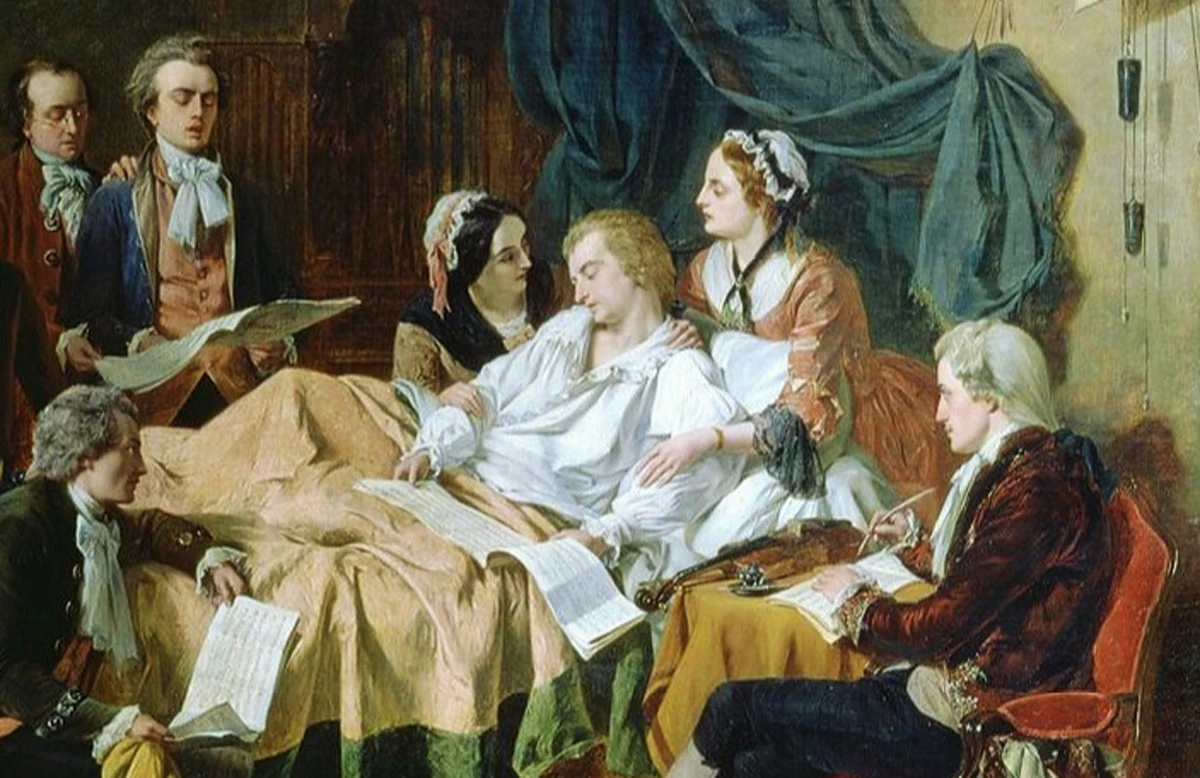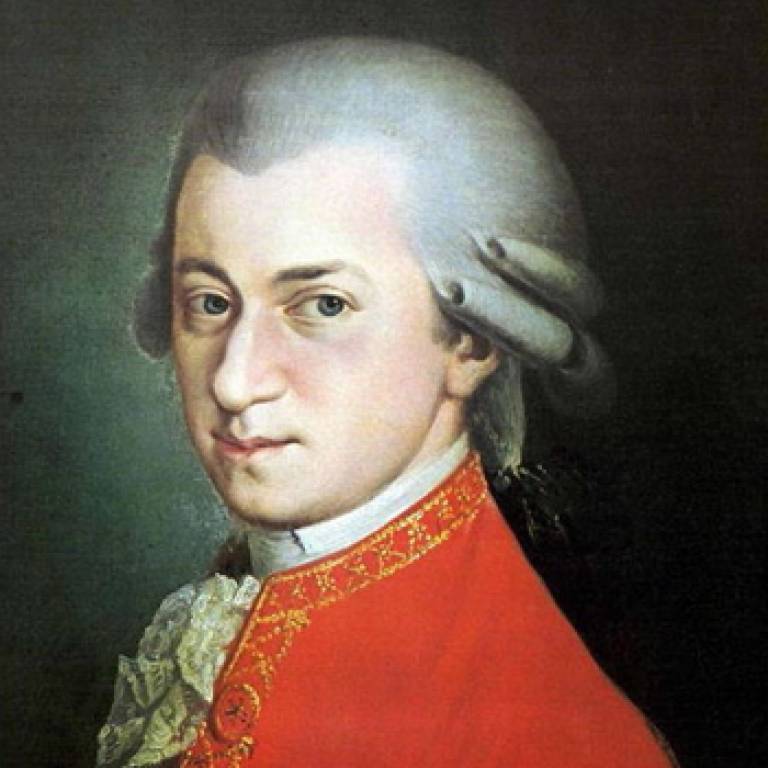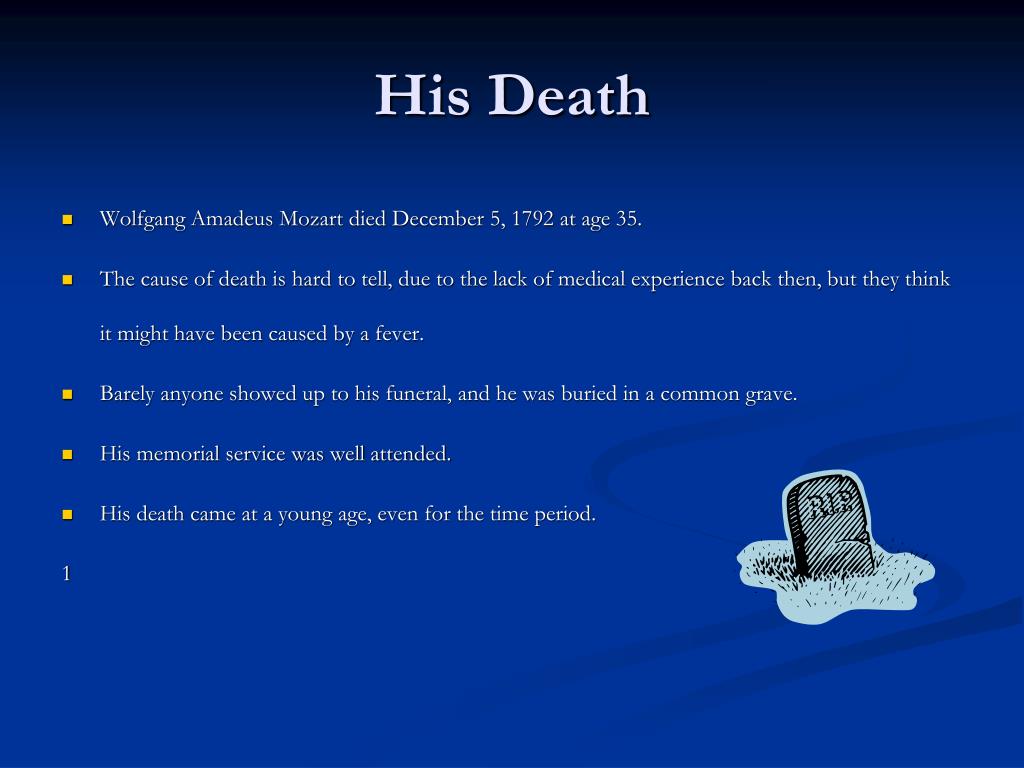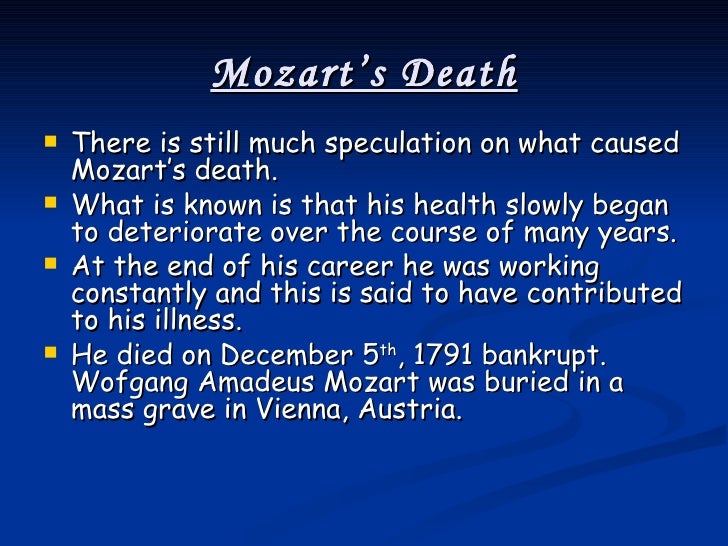
Introduction
Wolfgang Amadeus Mozart was one of the most influential composers in the history of classical music. He composed more than 600 works, including symphonies, operas, concertos, and chamber music. However, his life was cut short at the young age of 35. The cause of his death has been a subject of debate for centuries.
Early Life and Career

Mozart was born in Salzburg, Austria, in 1756. His father, Leopold Mozart, was a composer and music teacher. Mozart showed a prodigious talent for music at a young age, and he began performing for European royalty when he was only six years old.
Mozart's early works were mostly composed for the keyboard and the violin. He quickly gained a reputation as a prodigy, and he was soon composing operas and symphonies. His most famous works include "The Marriage of Figaro," "Don Giovanni," and "The Magic Flute."
Illness and Death

Mozart's health began to deteriorate in the late 1780s. He suffered from recurring bouts of illness, which caused him to cancel performances and miss deadlines for new compositions. In the fall of 1791, he began working on his final work, "Requiem Mass in D Minor."
Mozart died on December 5, 1791, at the age of 35. His death certificate listed the cause of death as "severe miliary fever," which was a catch-all term for a variety of illnesses. However, his symptoms have led many to speculate about the true cause of his death.
Theories about Mozart's Death

Many theories have been proposed about the cause of Mozart's death. Some have suggested that he was poisoned by his rival, Antonio Salieri. Others have speculated that he died of mercury poisoning, which was a common treatment for syphilis at the time.
More recent research has suggested that Mozart may have died of streptococcus infection, which caused a severe inflammation of his throat and led to his death. This theory is based on the symptoms described in his death certificate and the fact that streptococcus was a common cause of death in the 18th century.
Legacy

Mozart's music continues to be celebrated and performed all over the world. His influence can be heard in the works of countless composers, from Beethoven to Brahms to Stravinsky. His life and legacy have inspired numerous books, films, and documentaries.
Despite the controversy surrounding his death, Mozart remains one of the most beloved and celebrated figures in the history of classical music. His musical genius and his enduring legacy continue to inspire and captivate audiences around the world.
Conclusion
The cause of Mozart's death may never be known for certain. However, his music and his legacy continue to inspire and captivate audiences around the world. His influence on classical music and on Western culture as a whole cannot be overstated. Mozart's life and career may have been cut short, but his impact on the world of music will be felt for centuries to come.